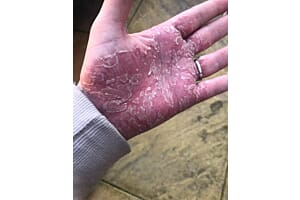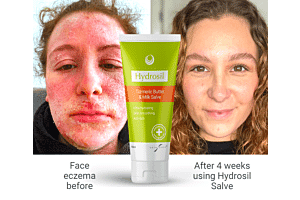Vitamins are potent organic compounds that are essential for proper growth and development. There are 13 in total, each with its own chemical structure and specific function.
17 September, 2008 – 07:24
Apart from a few exceptions the body is unable to produce its own supply of vitamins, which is why we have to turn to food or dietary supplements in order to remain healthy. Deficiencies, however, can lead to a number of health problems.
Vitamins fall into one of two categories and are either fat-soluble or water-soluble. The fat-soluble vitamins A, D, E and K are not easily lost by ordinary cooking methods and can be stored in the body for weeks at a time.
Vitamin A is responsible for vision, resistance to infection and healthy hair and skin. It is found in yellow, orange and green vegetables, tomatoes, full-fat dairy produce, liver and fish-liver oils. A prolonged deficiency may result in poor vision, respiratory infections, dry skin and dull hair.
Vitamin D is produced by the action of sunlight on the skin and is found in oily fish and full-fat dairy products. Above all, it is needed to help with the absorption of calcium to prevent bone disorders such as osteoporosis and rickets.
Vitamin E is a natural anti-oxidant that can help to delay the effects of ageing and encourage the growth of healthy cell membranes. It is found in most foods, but especially in vegetable oils, whole-grain cereal, nuts, seeds and green vegetables. Prolonged deficiency may result in dull hair, muscle weakness and possibly enlargement of the prostate gland.
Finally, vitamin K is necessary for the proper clotting of blood and normal liver functions. It is produced by bacteria in the large intestine, but is also found in green and leafy vegetables, egg yolk and yoghurt. Extreme deficiencies can lead to colitis, lowered vitality and premature ageing.
Water-soluble vitamins however, vitamin C and those belonging to the B complex, are easily lost during cooking and cannot be stored in the body. These have to be eaten daily.
Vitamin B1 is found in whole-grain foods, potatoes, nuts and milk, and is needed to break down carbohydrates and regulate the digestive system. Deficiencies can result in constipation and depression.
Vitamin B2 is also needed for a healthy metabolism. It is found in most meat and dairy products, fish and green vegetables. Its deficiency can cause inflammation of the tongue and lips, sores and hair loss.
Vitamin B3 is essential for circulation and a healthy functioning of the nervous system. It is most commonly found in liver, fish, poultry, peanuts, whole wheat and green, leafy vegetables. A deficiency can lead to poor skin, insomnia and headaches.
Vitamin B5 is needed for healthy skin and hair and helps to maintain a healthy nervous system. It is found in most foods, but especially in beans, peanuts and egg yolk. Deficiency is rare, but could lead to fatigue and stomach disorders.
Vitamin B6 encourages the production of antibodies against infection and is readily available in most foods. Deficiency, although rare, is thought to lead to dermatitis, anaemia and insomnia.
Vitamins B9 and B12 work closely together to assist in the formation of red blood cells and the metabolism of fats, proteins and carbohydrates. Both are found in meat, liver and kidney. Deficiencies of either will affect the efficacy of the other and could lead to anaemia.
Biotin, (also part of the B Complex), is also needed for the metabolism of fats and is found in egg yolk, liver and kidney.
Finally, vitamin C is essential for normal growth and the maintenance of practically all the body’s tissues. It protects against infections and helps prevent the common cold. Natural sources include fresh fruits and vegetables, especially when eaten raw. Deficiencies can lead to sore gums, loose teeth and low resistance to infection.
Vitamins are also available in supplement form, either separately or as a multivitamin combination. However, an excess of some vitamins, especially those that are fat-soluble, can also be as harmful as a deficiency, so if you do take supplements, be sure to keep to the recommended dosage.
For further advice ask at your local health store.







